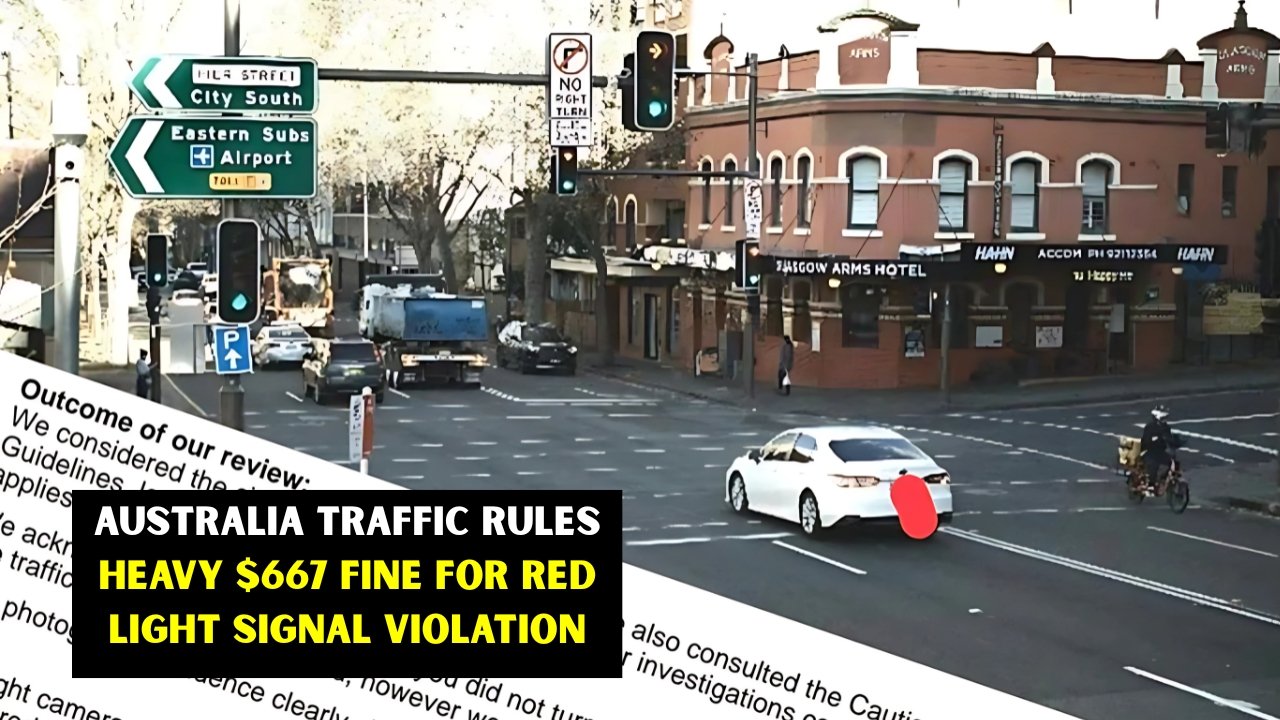In Australia skipping a red light now equates to a $667 fine and a loss of three demerit points, alongside the heightened concern of safety at traffic intersections and the enforcement of traffic regulations in Australia. This article closely discusses the specific aspects of a particular law, its logic, penalties, and its general effect on the citizens using the road.
Key Offences and Penalties
| Offence Description | Demerit Points | Fine (AUD) |
|---|---|---|
| Running a red light or arrow | 3 | $667 |
| Entering intersection on red signal | 3 | $667 |
| Disobeying twin red lights | 3 | $667 |
| Disobeying red B traffic light (bus/taxi/limousine) | 3 | $667 |
| Disobeying stop sign when lights not operational | 3 | $500 |
The Australian traffic regulations in its 2023 form considers skipping a traffic red light as a red light as a core traffic violation and thus imposes a in fine of $667. This includes driving through red traffic signals, disobeying red directional light arrows, and even driving into an intersection whilst a red light is active. This fine is a one size fits all fine as it applies equally all forms of breaching red light signals as well as specific offenses in disobeying red light signal pairs and marked pedestrian crossings.

What is the motive behind the new rule?
The new rule is an attempt to curb the risky driving behavior at intersections, the most statistically dangerous crossing on the road in terms of collisions and injury . A red light violation poses significant risk by its tendency to cause side-impact and T-bone crashes, threatening not just the people in the vehicle, but also the vulnerable road users like pedestrians. A new study shows a correlation between intersection accident rates and intersection violation penalties, which allegedly sustains the argument for the regulation.
Fines and points for skipping a red light signal
Fines and points in this case do not equate equally, and thus the maximum fine of $500 and loss of three driving points is a distinguished case. This punishment is reserved for the very small percentage of people who have been caught on red light violation through a police officer or on automated red light monitoring cameras. Under the reputation system, the accumulation of demerits could result in license suspension as supplementary punishment, which increases the associated cost of driving through a controlled intersection.
Enforcement and Technology
Automated enforcement greatly enhances detection rates, ensuring a decreased probability of the offenders evading the penalty or engaging in further reckless activities.[3]
Broader Impact on Drivers
Excessive ticketing of red lights along with other strict laws could alter the status of a driver’s license. Those who are considered reckless could have their driver’s licenses suspended due to the accumulation of excessive demerit points. Such violations would also lead to increased insurance premiums, Inflating the likelihood of being classified as a high-risk driver.
Road Safety Motivation
The enforcement of the law goes beyond the augmentation of the tax base as these rules are centered around the mitigating the loss of lives and preventing accidents at intersections. Safety campaigns tend to reinforce the notion that patience and abiding by all traffic rules is a critical aspect of driving in Australia.[2][3]
FAQs
Q1: What is the latest fine for running a red light in Australia?
The fine is $667 plus 3 demerit points.
Q2: How are red light offences detected?
The majority of the violations are captured through red light cameras mounted on roads.














